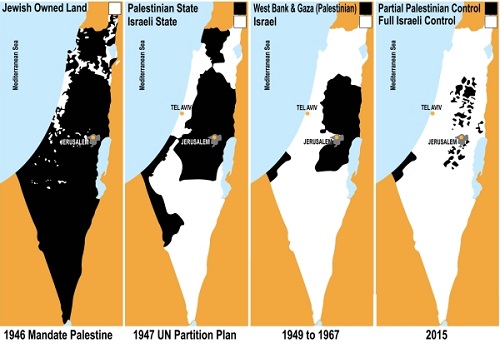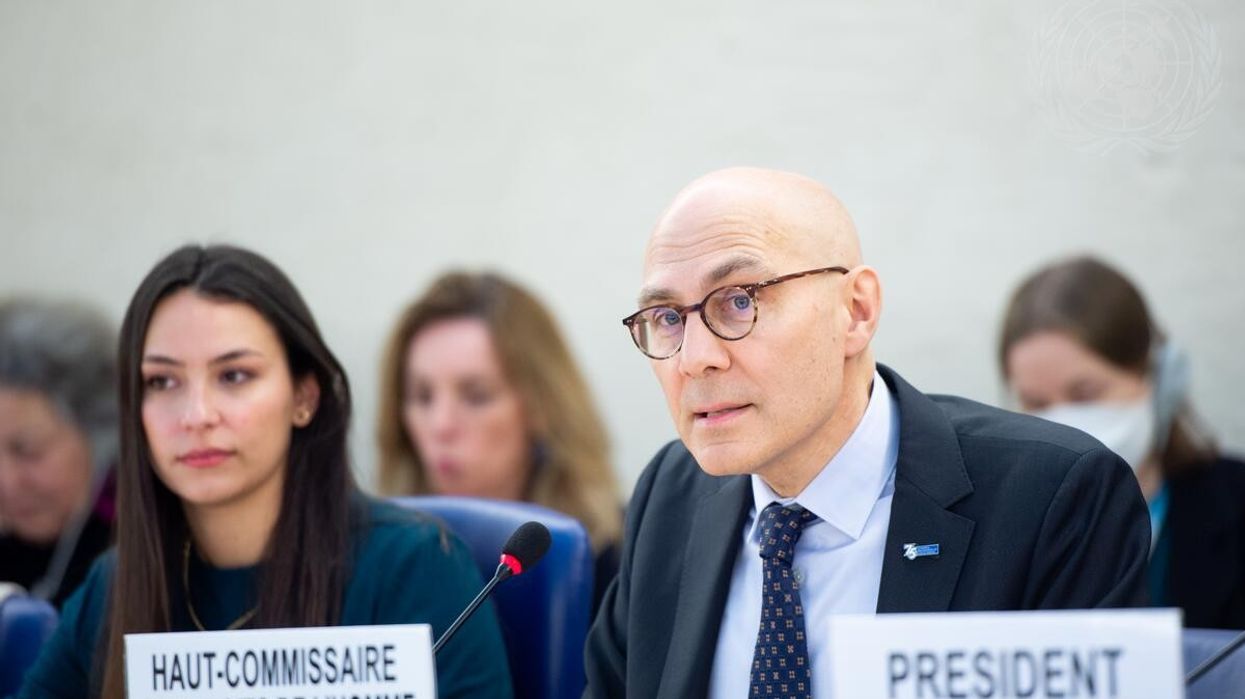
To the unbiased eye, Israel’s true colors are not obfuscated due to its innumerable crimes against the Palestinians whether in the form of innocent Gazans being killed or the proliferation of illegal settlements in the West Bank. It is interesting to note that the state of Israel and the IDF’s (Israel Defence Forces) terrorist proclivities are nothing new – instead, they are rooted in the ideologies and actions of Jewish pre-independence terror groups, the Irgun and Lehi. The article describes the Irgun and Lehi’s origins, sheds light on their gruesome terrorist undertakings in Palestine, and then concludes with how their extremist legacy has been kept alive via the actions of the state of Israel.
The Irgun and Lehi
The Haganah was a paramilitary group active between 1920-1948 to protect Jews from Arab attacks and rioting. Poorly organized and composed mainly of farmers in its infancy, the group became better equipped and structured after the 1929 riots as well as the 1936-1939 Arab revolt. Until the end of WWII, the Haganah was moderate in its approach according to its policy of havlaga (self-restraint). The group was ordered not to attack Arabs indiscriminately and cooperated heavily with the British security forces in Mandatory Palestine. Such moderation, however, irked some members of the group which later led to splintering and the creation of the more indiscriminately violent Irgun (or Etzel) and Lehi (or Stern Gang).
Akin to many militant organizations, the Irgun evolved from a rudimentary group to a proper fighting force over time complete with a chain of command. The Irgun was formed by Ze’ev Jabotinsky, a Revisionist Zionism leader. Throughout the years it also battled an inward ideological tug of war – i.e. the debate of self-restraint versus actively attacking the Arabs and British.
In response to dissatisfaction with Britain’s governance, Zionist land purchases, dispossession, and debt, the Arab Revolt of 1936-1939 erupted in Palestine. Instances of Arab violence and terrorism against the Jews heightened in this period, which saw Irgun’s policy of self-restraint waning. In 1936, the Irgun unofficially ended this policy and began attacking Arabs in response to Arab attacks on Jews. In July 1937, Irgun’s self-restraint policy officially ended as even Jabotinsky, who had been opposed to retaliatory actions, ceded to the growing demands to attack Arabs. On 14 November 1937, or Black Sunday, a massive indiscriminate campaign was launched against the Arabs (details later).
The British White Paper in 1939 was a watershed moment as it restricted Jewish migration to Palestine which subsequently invited the vehemence of the Irgun. The Irgun and Haganah in retaliation illegally brought thousands of Jews to Palestine.
World War II saw increased terrorist attacks by the Irgun primarily against the British administration to coerce them into reverting the 1939 White Paper. The war also allowed the Jewish militias to arm themselves more effectively. However, there was again an internal rift, which had been festering before the war, that caused another split. Avraham Stern, once the political head of the Irgun, disagreed with Jabotinsky on certain matters. When World War II broke out, Stern wanted to leverage the Irgun and attack the British as he discerned them, not the Arabs, as the principal antithesis to the Jewish state. Conversely, Jabotinsky opined that the Irgun must cease anti-British activities and that the British could be convinced that the Jews could safeguard their interests in the region. The schism led to the creation of the Lehi on 17 July 1940. Although the Lehi were far inferior in numbers (less than 300 members), their assassinations and terrorist attacks not only shook Palestine but also the world.
From 1944 until Israel’s independence, a Jewish insurgency led primarily by the Irgun and Lehi against British rule engulfed Palestine with hundreds of British security personnel dying. After independence, the terrorists from the Irgun, Lehi, and Haganah were either disbanded or integrated into the IDF.
Terrorist Activities of the Irgun and Lehi
Although there are too many terrorist attacks to form an exhaustive list here, the article will highlight the more devastating ones. The Irgun conducted over 60 attacks on the Arabs during the Arab Revolt 1936-1939. The group used four different tactics: 1) Assassinations 2) Attacking transportation routes 3) Shootings 4) Using explosive devices. One of their most infamous attacks, called Black Sunday, was where 10 Arabs were killed and many wounded by Irgun units around Jerusalem. The Irgun commemorated the day by brazenly asserting “the Day of the Breaking of the Havlagah.”
On June 19, 1938, 18 Arabs were killed – including 6 women and 3 children – and 24 injured in Haifa by an Irgun bomb that was ignominiously detonated in a crowded Arab marketplace.
In July 1938, the group planted a mine in a Haifa market, which tragically resulted in over 70 Arab deaths.
In February 1939, 33 Arabs were killed in multiple attacks – a bomb that killed 24 in Haifa and another that killed 4 in Jerusalem.
In 1939, the Irgun shifted its animus toward the British authorities. In August 1939, the British administration’s broadcast center in Jerusalem was blown up and a few days later, a high-ranking British officer was killed.
In December 1945, 3 British policemen and 4 Sotho soldiers were killed when a British CID HQ was bombed in Jerusalem.
One of the most infamous of these terrorist attacks was the one conducted in the King David Hotel in Jerusalem. The hotel was the British Mandatory authority’s central office. A bomb was placed in the basement by Irgun members and the resulting explosion “killed over a hundred people, including many civilian employees, Arab, British, and Jewish.”
As for Lehi, it too conducted many reprehensible attacks in Palestine. One such was the assassination of Lord Moyne, the British Minister Resident in the Middle East, as he was seen as a model of Britain’s intransigence. He was gunned down in Cairo in November 1944.
On 4 January 1948, the Lehi introduced a new form of terror to the world – the car bomb. Yaakov Heruti and Eliezer Ben-Ami, the pioneers of this evil, targeted the Saraya building in Jaffa. The explosion killed 28 Arabs including many civilians as well as injuring hundreds more. Not only was the car bomb used commonly in pre-independence Israel against the Palestinians but was later adopted by other militant groups primarily in the Middle East.
The most detestable terrorist attack however was the Deir Yassin Massacare. On 9 April 1948, around 120 Lehi and Irgun fighters in cooperation with the Haganah attacked Deir Yassin village and massacred hundreds of Arab civilians, many of whom were women and children. This incident was so heinous that it was condemned by Jewish authorities, the chief Rabbinate, as well as Ben-Gurion. Condemnation, however, was not enough as no one was ever punished for the tragedy that befell the Arabs. According to Benny Morris, Deir Yassin was not an isolated incident. He says, “The worst cases were Saliha (70-80 killed), Deir Yassin (100-110), Lod (250), Dawayima (hundreds) and perhaps Abu Shusha (70)…. The fact is that no one was punished for these acts of murder. Ben-Gurion silenced the matter. He covered up for the officers who did the massacres.”
Legacy
Labeling and admonishing the Irgun and Lehi as terrorists is neither controversial nor hyperbolic. To the British leaders, the Jewish Agency, prominent Jews including Albert Einstein, and most importantly, the Palestinian Arabs, the members of the Irgun and Lehi were nothing less than terrorists.
Perhaps the most monolithic of Israel’s sins was permitting these terrorists to become soldiers in the new IDF as well as allowing the Irgun and Lehi’s leadership to segue, without culpability, from terrorism into politics. For example, Menachem Begin, an Irgun leader in 1944, later founded the Likud party and became Israel’s 6th PM. Yitzhak Shamir, leader of Lehi in 1943, served in the Mossad and became Israel’s 7th PM. One of Lehi’s members, Yaakov Heruti, who pioneered the car bomb, later founded the right wing political parties Tehiya and Tsomet – and was responsible for helping settlers buy land in the occupied territories. Due to this this post-independence apathy, the Irgun and Lehi’s terrorist proclivities still permeate within Israel’s political and security power corridors.
This is evidenced by Israel’s perennial war crimes and human rights abuses against the Palestinians. In the last 4 conflicts in Gaza (from 2008 to May 2021), 18,992 Palestinian casualties (civilians and combatants) occurred compared to 1,563 Israeli casualties (civilians and combatants) – 92% of the casualties were Palestinian.
On May 11, 2022, Palestinian-American journalist Shireen Abu Akleh was deliberately killed by the IDF. Despite Israel rebuffing this, independent investigations from many organizations including CNN and Forensic Architecture assert otherwise. The latter stating that the IDF deliberately targeted Shireen “with the intention to kill.”
Violence in the occupied West Bank has also surged in the past year with Israel conducting “near-daily raids over the last year, killing hundreds of Palestinians.” The recent Huwara riots or “pogroms” as many are calling it also traumatized the world, which saw hundreds of Jewish settlers in the occupied West Bank ravaging Huwara by torching buildings and cars. The violence led to one Palestinian’s death and hundreds injured. Commentators rebuked the settlers, the IDF for its inaction, as well as ministers such as Bezalel Smotrich who stated that Huwara should be “wiped out.”
